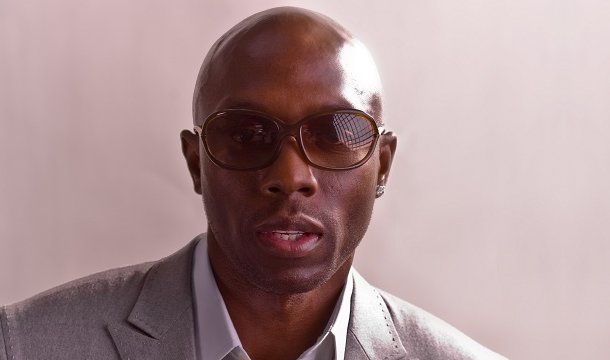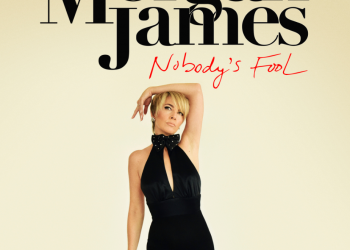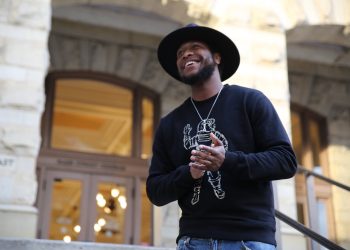It’s no diggity, no doubt about to go down on the legal front for the members of beloved R&B group Blackstreet.
Member Chauncey “Black” Hanibal is suing fellow member Teddy Riley for rights to the “Blackstreet” name, reports TMZ. Black claims Riley has been performing under the moniker without Black’s permission, since he recently bought the rights to the group name.
A spokesperson for Riley claims that Black’s claims are “ridiculous. At this time we have no comment on any of the ridiculous and frivolous claims apparently being made by Chauncey Andre Hannibal aka 'Black,” said the representative.
This news follows the lawsuit between En Vogue when members Cindy and Terry sued Maxine and Dawn for $1 million for performing under the En Vogue name which they claimed they owned. Their suit was recently settled, the courts siding with Cindy and Terry.
Blackstreet is scheduled to perform at the 2013 Essence Music Festival on July 4-7. Let’s hope all air is cleared before then so there won’t have to be tension felt on stage!
Chauncey Black was a founding member of the 90s hit R&B group, Blackstreet. Specializing in classic soul and hip-hop music, their hits like “No Diggity” and “Don’t Leave Me” still get people on the dance floor today. Now, Chauncey is taking legal action against another artist who has been using his former band’s name without permission–and it could be a precedent setting case. Read on to learn what happened that made him take such drastic measures.
In the early 2000s, Chauncey left the group but kept ownership of the rights to its name. He then created an entertainment company called “Blackstreet Entertainment LLC” under which he manages several performers that carry out events throughout the country. It seems someone else had plans for Blackstreet too however; unbeknownst to him or any other members of his original band, another artist started using their trademarked name as well. This prompted Chauncey to file a lawsuit over this unauthorized use of his intellectual property.
It remains unclear why the other artist chose to use Blackstreet’s name without consulting with any current or past members, especially since they have all worked together in various capacities since disbanding almost twenty years ago. But whatever their motives were, one thing is certain: Chauncey isn’t going down without a fight and this case will certainly make waves in both the music industry and beyond!
Background Information
Chauncey Black, the original vocalist of R&B group Blackstreet, has filed a lawsuit against Sony Music and BMG alleging that they have been unlawfully using his name in connection with the group’s music. The suit was filed on March 5th 2021 in New York federal court.
Black claims that he is owed royalties from past recordings as well as current ones that are being distributed by Sony and BMG under the band’s name. He also alleges that the label did not obtain permission to use his likeness or voice for any promotion or marketing related to the group’s work.
The former singer seeks an injunction preventing further use of his name without consent, along with monetary damages and other legal fees associated with this case. This isn’t the first time Chauncey Black has taken legal action against those who have wrongfully used his name; he previously filed similar suits in 2009 and 2011 against various entities representing some members of Blackstreet. It remains to be seen how this latest dispute will turn out but it appears that Mr. Black is determined to fight for what he believes is rightfully his.
Legal Action Taken
In response to the alleged violations of his rights, Chauncey Black has now taken legal action against Sony Music and BMG. He is seeking an injunction preventing further use of his name without permission as well as monetary damages and other related fees. Through this lawsuit, he hopes to receive compensation for past recordings that have been distributed under the band’s name, along with any new ones created in the future.
Black isn’t a stranger to taking legal action either; this marks the third time he’s filed suit due to misuse of his identity or likeness. The first two lawsuits were brought forth in 2009 and 2011 respectively against various entities representing some members of Blackstreet. This latest dispute looks to be just another instance where Mr. Black will fight for what he believes belongs to him.
It remains uncertain how this case will play out but it’s clear that Chauncey Black won’t stand idly by when it comes to protecting his interests and legacy within music history.
Conclusion
In conclusion, Chauncey Black’s lawsuit against the unauthorized use of his former group Blackstreet’s name is a reminder that musicians should take legal steps to protect their intellectual property. Although the law may not always be on an artist’s side in cases like this one, it’s still important for creators to make sure they have done all they can to ensure their rights are defended and respected.
For artists who find themselves in similar situations as Chauncey Black, consulting with a lawyer experienced in intellectual property law would likely be beneficial. A knowledgeable attorney could help advise them on what actions need to be taken to help ensure their creative work is protected under copyright law. Additionally, having a contract outlining ownership rights when forming a music group or working with other collaborators will go a long way in preventing issues such as these from happening down the line.
Chauncey Black’s case serves as an example of why it is essential for musicians to understand their rights and take proactive steps towards protecting their intellectual property. It also highlights the importance of making sure any agreement between two parties involved in the creation of music is clear and legally binding before moving forward with any collaboration.








